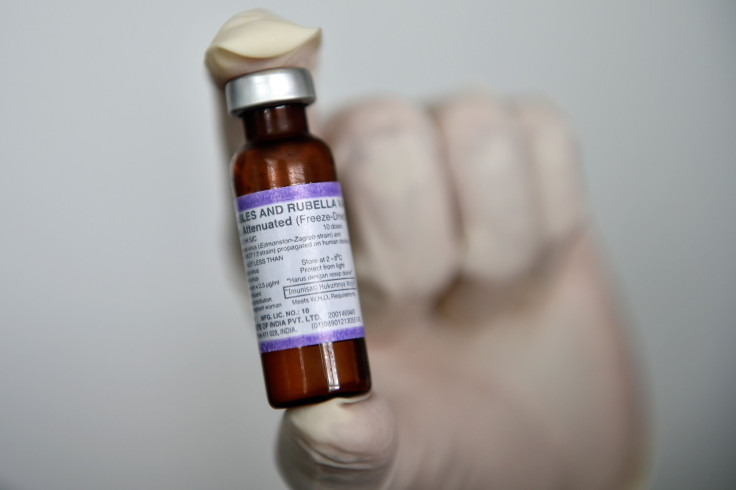11-Month-Old Dies After Complications Caused By Measles-Rubella Vaccine

An 11-month-old girl died Thursday in the city of Nagpur, located in the Indian state of Maharashtra, two days after she was given measles-rubella shot during an ongoing vaccination drive in the state. Local newspaper the Times of India reported the girl vomited and showed signs of bad health just two hours after being vaccinated.
The child was taken to a nearby hospital but after her condition worsened, her parents moved her to the Government Medical College and Hospital (GMCH) where she was kept on observation. However, she showed no signs of improvement despite several efforts. The girl died two days later. A preliminary autopsy revealed the cause of death to be "toxic shock syndrome."
Two more children were reportedly admitted in the same hospital after they were administered the measles-rubella vaccine.
The Maharashtra state was conducting a six-week-long MR vaccination drive from Nov. 27 to Dec. 31. On Dec.8, government officials said 18 million children between the ages of nine months and 15 years were administered the measles-rubella or MR vaccine in the last 10 days.
Both measles and rubella are viral and highly contagious diseases. According to Measles & Rubella Initiative, in 2017, measles killed an estimated 109,000 children worldwide – mostly children less than five years of age. When one person has measles, 90 percent of the people they come into close contact with will become infected. Measles weakens the immune system and leads to secondary health problems such as pneumonia, blindness, diarrhea, and encephalitis.
Rubella, also known as “German Measles,” is generally a mild disease but it can lead to dangers for pregnant women and their children. Like measles, rubella can be prevented with a vaccine.
© Copyright IBTimes 2025. All rights reserved.





















